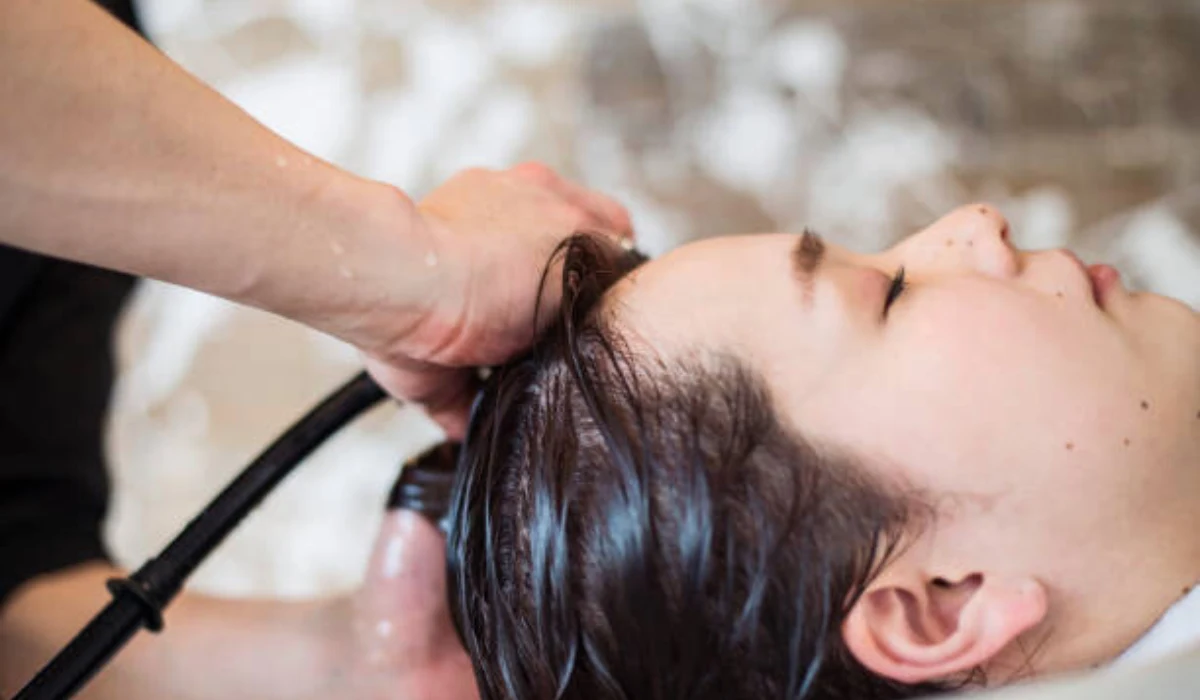Everybody wants to have a dashing personality, and for that, they mainly focus on face and hair. However, the fast pace of life and getting more inclined towards an unhealthy lifestyle results in the disbalance of hormones, due to which hair loss occurs. In addition, other factors are primarily responsible for hair loss, including heredity, medication, chemotherapy, and many more.
However, there are several natural ways to grow hair and prevent its loss, and one such is clove water. But before moving to that section, you must be familiar with the factors responsible for hair growth, as this idea will give you a clear picture of the role of clove water in hair growth.
So, if you are suffering from hair loss and have already tried a lot of methods to grow hair but haven’t gotten an effective result, then don’t worry, as this article will help you achieve your goal.
Hair Growth – A Short And Effective Guide

We all know that our body is made of cells, and in the case of hair, it originates in follicles, which are made of 20 different cells, and each cell plays a different role in hair growth. Moreover, follicles interact with hormones to grow hair, but this is not an easy process, as it goes through three different cycles. In addition, hair growth depends on person-to-person, age, sex, and geographical location.
Another key point you should remember is that not all hair grows equally, and also the length varies. For instance, normal hair, when it completes its cycle, grows 1 cm/month, but when it comes to scalp hair, then its growth can reach 3 cm/month. Moreover, in hair, you will find a protein called Keratin, which also helps in hair growth, so considering these factors will help you understand the role of clove water in hair growth. So, let’s see what clove water can do for your hair and what properties it contains that will help in hair growth.
Clove Water: A Miracle for Hair Growth
You might have used cloves as spices in preparing food, such as biryani and pulao, cooking vegetables, and in desserts, such as kheer. But you may be astonished to hear that cloves are rich in nutrients, such as Vitamin C and vitamin K, and essential minerals, including calcium, magnesium, and iron. These elements help increase blood circulation in the scalp and strengthen hair follicles. This is the prime reason that people are using clove water for hair growth.
The minerals present in cloves help in the synthesis of a protein called keratin, which helps in hair growth. Moreover, they also provide oxygen to follicles, which is good for healthy hair. In addition, cloves are rich in organic compounds, including phenolic and Eugenol, which help in keeping the scalp healthy and keep dandruff away from your hair.
If your scalp is healthy, then follicles will function effectively and ultimately will result in healthy hair. So this is the reason why clove water is called nectar for hair growth. Now, let’s look at the usage process and benefits of applying clove water to hair.
Simplified Method for Creating Clove Water to Improve Your Hair Care Routine
The preparation of clove water is very easy, and you don’t need a lot of items while preparing as two items are enough, i.e., cloves and water. Initially, take some 10-15 cloves, clean them properly and then keep them aside for a moment because you need to heat water till it reaches the boiling point; then add the cleaned cloves.
Thereafter, keep the gas flame at low for 10 minutes so that all the nutrients of the cloves should get dissolved in water. Once the time frame is over, use a strainer to filter water and then leave for some time so that the clove water can reach to room temperature.
Optimal and Highly Effective Methods for Utilizing Clove Water for Hair Growth
Now your clove water is ready, and you can also keep it in a cool place so that you can use it again in the future as it remains fresh for a week, which means you can use this solution till that period. The usage process is very simple, but there are several ways, so you can choose one based on your comfort.
The best way to use clove water is when you are taking a bath, and while doing shampoo, just mix clove water, rub it on your head gently, and do a little head massage. Once you are done, wash your head thoroughly and ensure to repeat this task whenever you shampoo your hair.
Another effective way to apply clove water on hair is in the form of a hair mask. Well, the preparation process is very simple: just take aloe vera gel, mix clove water and then apply it to your hair. Now, keep it for an hour, and till that time, you can perform some other activity. When the time duration ends, wash your hair with fresh water.
In this method, you will need one additional item to use clove water on your hair, i.e., a cotton ball. If you have cotton in your home, then prepare some balls. Once you are ready with a cotton ball, spread your hair so that you can reach your scalp and then massage that area with the cotton ball that you have dipped into the clove water.
Read More: What Are The Tips And Care For Type 3C Hair? – A Complete Guide!
Conclusion
Clove water contains ample nutrients, including vitamins, minerals and organic compounds, which help in hair growth. In addition, you can mix this solution with other items that are healthy for hair, such as apple cider vinegar, green tea, yogurt, rosemary oil, and others. The selection of such items depends on your choice and your allergic nature towards the listed items. However, if you want to use clove water standalone, then the above-listed preparation and application methods are best for you. However, you won’t see the result instantly, as you will have to include this in your daily life for a longer time, and only then will you get the outstanding result.
References:
- Thorat R, Jadhav V, Kadam V. Development and evaluation of polyherbal formulations for hair growth-promoting activity. Int J Pharm Tech Res.2009;1(4):1251-1254.
- Lee E., Koo J., Berger T. UVB phototherapy and skin cancer risk: a review of the literature. International Journal of Dermatology. 2005;44(5):355–360. doi: 10.1111/j.1365-4632.2004.02186.x. [PubMed]
- Shapiro J., Price V.H. Hair regrowth therapeutic agents. Dermatol. Clin. (1998);16:341–356. doi: 10.1016/S0733-8635(05)70017-6. [PubMed]

